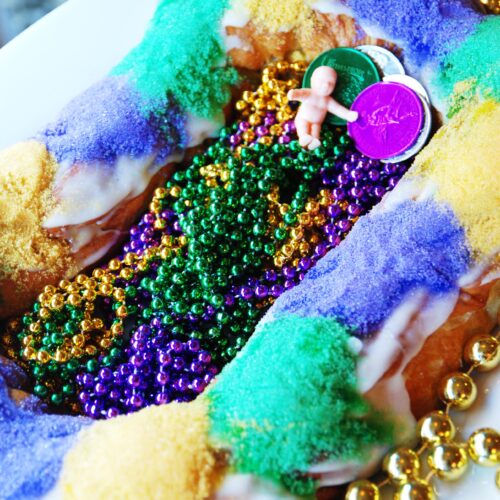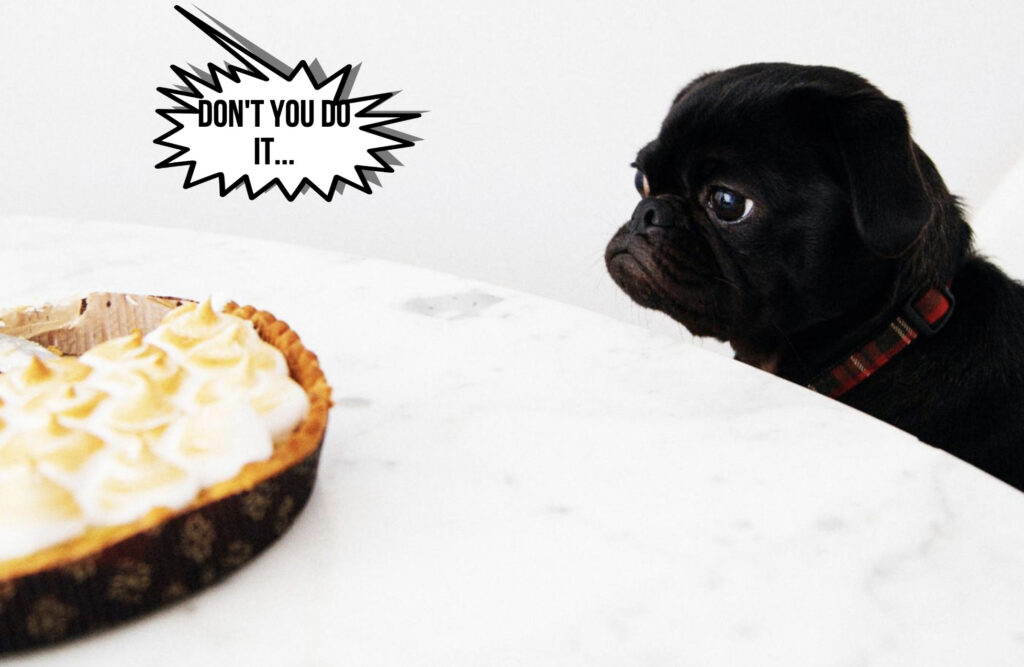
No Doggy Bags: From Turkey Bones to Cranberry Sauce: Keep Your Dog Safety Tips and Healthy Ops this Holiday Season
You may think sharing your Thanksgiving leftovers with your pup is an act of kindness, but trust me; your dog doesn’t care about your leftovers as much as you do. But, feeding your dog Thanksgiving leftovers could lead to a disaster that could ruin your holiday spirit (and carpets).
While it’s tempting to let your furry friend indulge in some festive grub, be warned: the aftermath could be worse than the aftermath of your Uncle Joe’s notorious creamy green bean recipe.
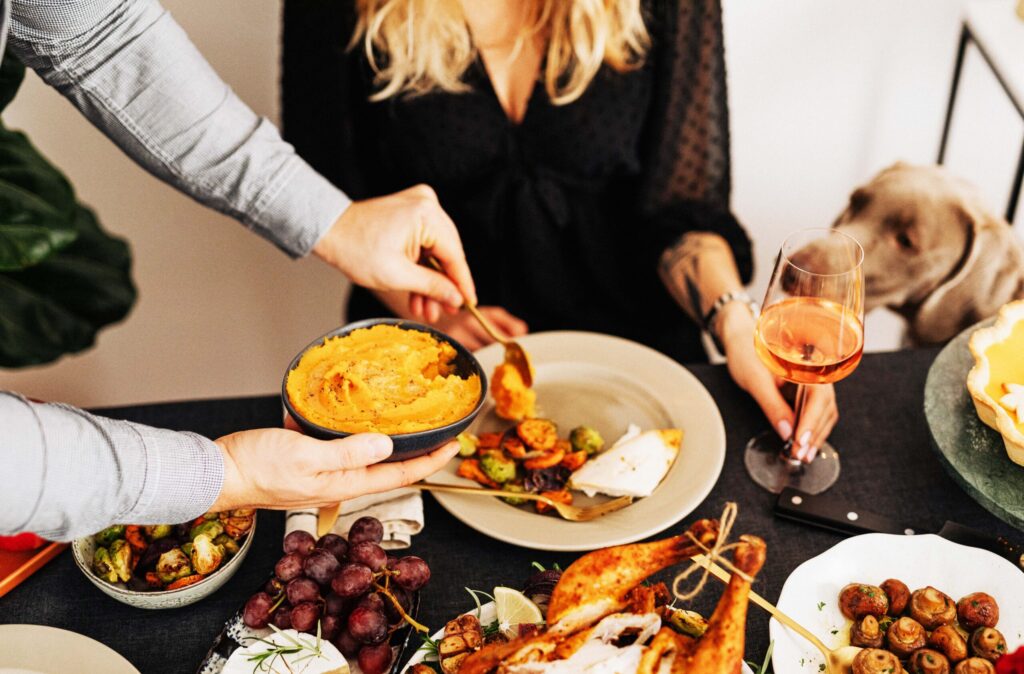 Feeding your dog Thanksgiving leftovers can be dangerous and potentially harmful to their health. Many traditional holiday foods contain ingredients that can cause digestive upset, pancreatitis, and even toxicity in dogs.
Feeding your dog Thanksgiving leftovers can be dangerous and potentially harmful to their health. Many traditional holiday foods contain ingredients that can cause digestive upset, pancreatitis, and even toxicity in dogs.
It’s essential to be aware of which foods are safe and which ones are not before offering any Thanksgiving leftovers to your four-legged companion.
*Thanksgiving leftovers may not be the best choice for pets like cats, rabbits, birds, and other animals either.
Here are some common Thanksgiving leftovers that you should not give to your dog and the reasons why:
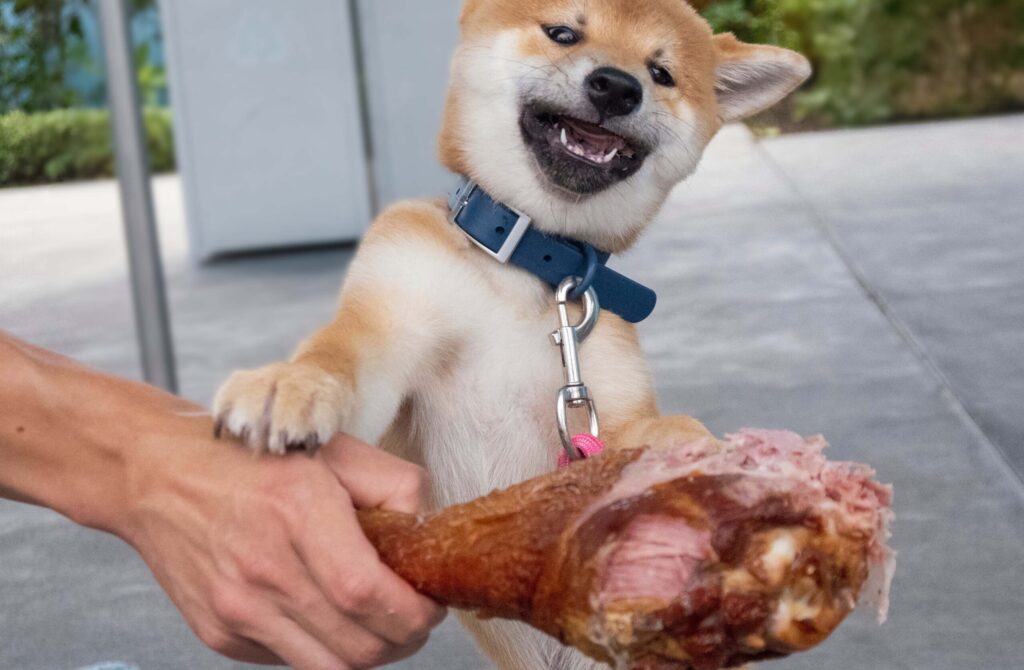
- Turkey Bones: Poultry bones, including turkey bones, can splinter and cause severe damage to your dog’s digestive system or even puncture its intestines.
- Stuffing: Many stuffing recipes contain onions, garlic, or other herbs and spices that can be toxic to dogs and cause stomach upset.
- Spices: Some spices like nutmeg, sage, and cinnamon are commonly used in Thanksgiving dishes, but they can cause stomach upset, vomiting, and even neurological issues in pets if consumed in large quantities.
- Gravy: Gravy is usually high in fat, which can lead to pancreatitis, a potentially severe inflammation of the pancreas.
- Mashed Potatoes: Potatoes themselves are not toxic to dogs, but mashed potatoes often contain other ingredients that can be harmful to them, such as garlic, onion, or butter.
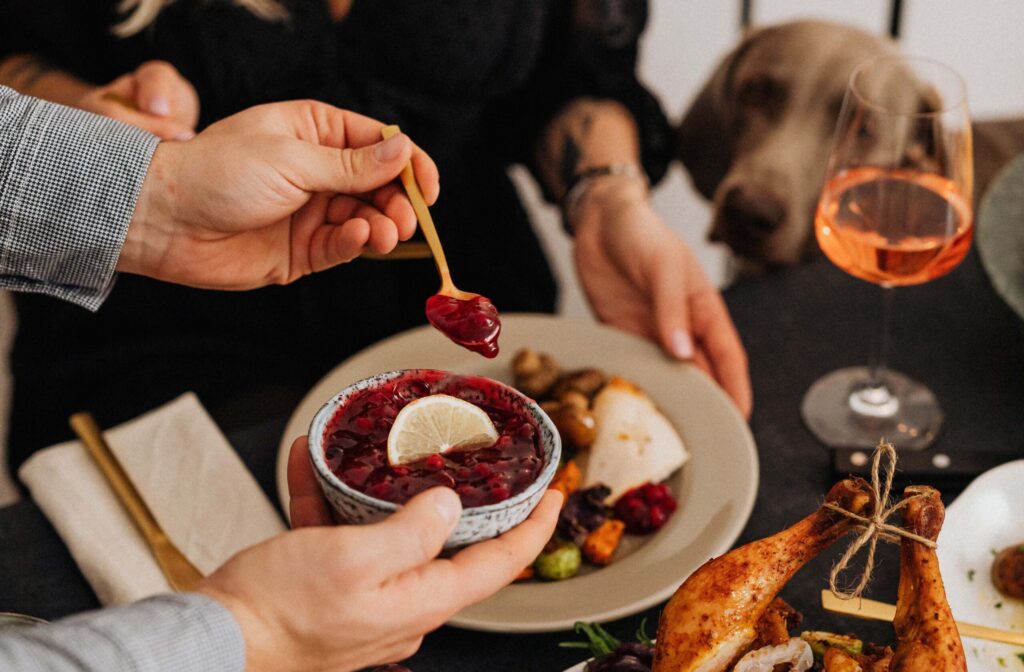
- Cranberry Sauce: Cranberry sauce may contain a high amount of sugar or artificial sweeteners, which can cause gastrointestinal upset or even pancreatitis.
- Dairy products: Many Thanksgiving dishes, like mashed potatoes and pumpkin pie, contain dairy products that can be difficult for pets to digest, causing gastrointestinal problems.
- Onions and garlic: Onions and garlic are commonly used in Thanksgiving dishes, but they are toxic to cats, dogs, and rabbits. They can cause anemia, which can be fatal if not treated promptly.
- Desserts: Most desserts are high in sugar, fat, and calories, which can lead to obesity and other health problems. Additionally, many desserts contain ingredients like chocolate, raisins, or nuts that can be toxic to dogs.
- Alcohol: Alcoholic beverages should never be given to pets. Even small amounts of alcohol can cause vomiting, diarrhea, coordination issues, central nervous system depression, breathing difficulty, coma, and even death.
TIP: It’s always best to avoid giving your pets table scraps, especially during holiday meals. Instead, stick to their regular diets and moderate pet-friendly treats like unseasoned cooked turkey or sweet potatoes. Always consult your veterinarian before making significant dietary changes to your pet’s diet.
Did you know?
Giving dogs Thanksgiving leftovers may be cause for allergic reactions to ingredients commonly found in holiday meals.
For example, turkey, wheat, and dairy are all common allergens for dogs. If your dog has a food allergy, feeding them leftovers containing those ingredients could cause an allergic reaction, including symptoms such as itching, swelling, and gastrointestinal upset.
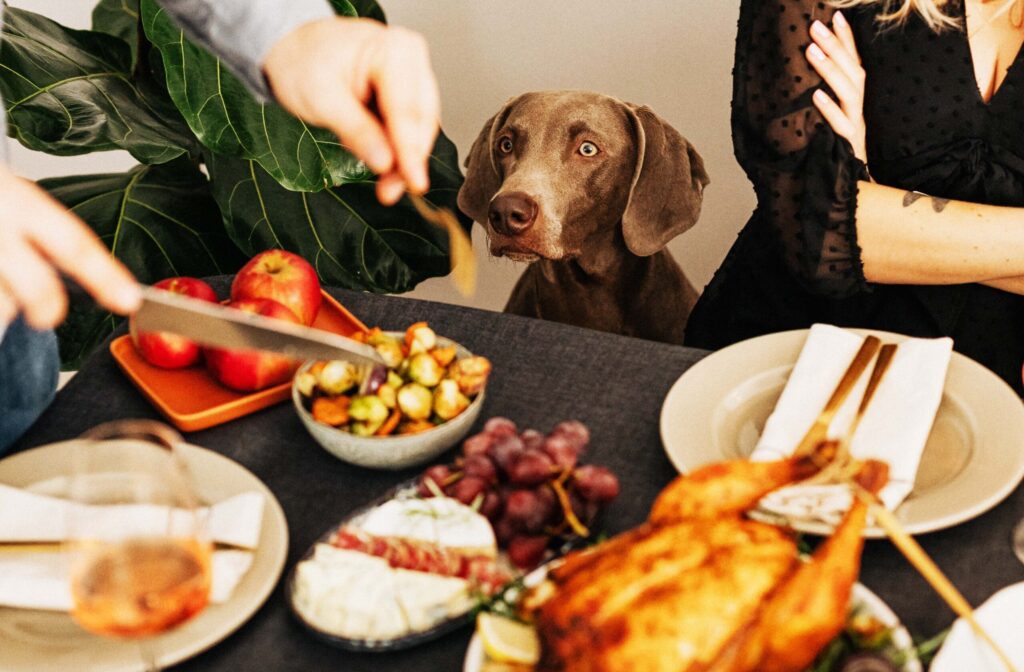 A little history:
A little history:
In the early days of domesticated dogs, they were often fed whatever the family ate, typically leftover scraps and bones. This continued through the centuries, with dogs seen as “scavengers” that could help clean up after meals.
As Thanksgiving became widely celebrated in the United States, dogs were likely given some leftovers.
It’s important to note that our understanding of dog nutrition and health has evolved significantly over the years.
We now know that some human foods can be dangerous or even deadly for dogs. As a result, it’s essential to be mindful of what we feed our furry friends, especially during the holiday season.


